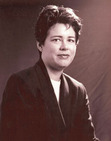Trusting Enough to Fall
Have you ever been to one of those corporate seminars where they have people pair off and then topple backward, trusting their new partner to catch them?
Writing along the lines of technique can be a bit like that. It’s scary and hard. So much easier to remain timid and hold back.
Yet until you can force yourself to trust the proven principles of writing enough to follow them, your writing will probably never grow or improve past a certain point.
Back in the old days, when I was learning to write, my instructor Jack Bickham used to drill us mercilessly in techniques such as scene construction or viewpoint management. Then he would talk about a book he loved–ZEN AND THE ART OF MOTORCYCLE MAINTENANCE–and he would tell us to “Trust the process.”
Over and over, he stressed that dictum: “Trust the process.”
At the time, I didn’t know much about the zen philosophy and I didn’t always understand what he was trying to teach us. But he repeated “Trust the process” so often that it became imprinted on my brain.
So eventually I did trust technique enough to use it. Other than learning scene construction and the importance of conflict, trusting the process–the principles of writing, if you will–is probably the most valuable lesson that Bickham ever imparted to me.
Believing in the foundation techniques of plot and story progression got me my first publication. It got me better contracts. It kept me publishing steadily across my career. It served me well that year when I was homeless, distracted by insurance claims adjusters, and struggling to meet a book deadline. Even now, when I’m frustrated or lost, baffled by the Gordian knot I’ve somehow wound my plot into, I can hear that gruff voice speaking to me: “Trust the process.”
That’s when I stop, calm myself down, review the writing craft that I know, and make myself go to the most basic rules of writing.
The solution to my problem is always there. Always. I may not like that solution. It may involve throwing out pages or jettisoning a character. But it’s there. And if I grasp it and move forward, I reach the finish of my story without fail.
Ray Bradbury said to master the techniques of writing so that you don’t have to think about them anymore. You can then concentrate fully on your story.
Sound advice.
I spend my working days watching my fledglings crowding along the edge of uncertainty, afraid to test their wings, afraid to jump and soar, afraid that if they try they’ll fall.
They’re just learning the principles of how plots are made and scenes are constructed and stories are ended in dramatic climax. They barely grasp these concepts. They struggle to try them and falter, and when that happens they hunch up and lose their nerve.
It is safer, of course, to stay on the ground and fold their wings and refuse to try. Staying put brings no risk.
But staying put brings no glory either.
You can’t trust the process if you never jump.
Maybe you crash and fail the first few times. Practice more! Try it again. Adopt the motto of GALAXY QUEST: “Never give up. Never surrender!”
You must believe it’s possible to solve the mystery of writing. You must believe that you can do it. If you lacked any ability to write you wouldn’t be drawn to it in the first place.
Like Dumbo in the Disney animated film, you have to grasp the magic feather and fly.
Find the process that works for you. Learn it. Practice it until you can recite it in your sleep. Master it. And then trust it.
It will catch you every time.
It will catch you.


C. Aubrey Hall's Blog
- C. Aubrey Hall's profile
- 7 followers



